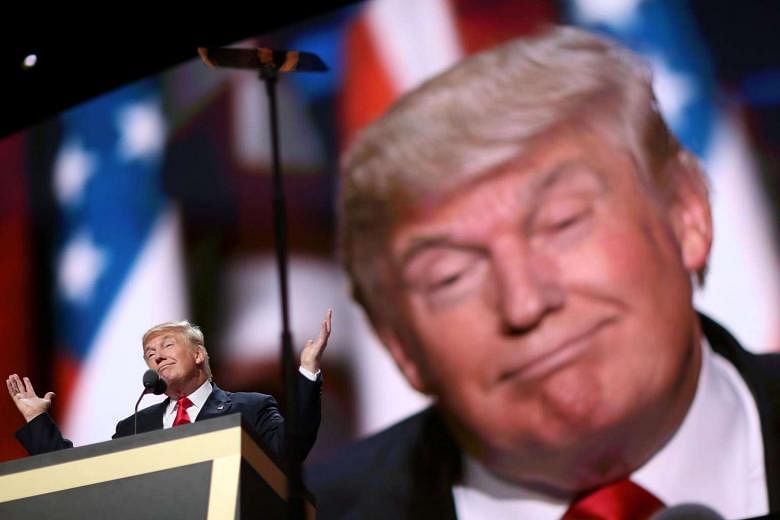United States President-elect Donald Trump has rubbished American intelligence reports that Russian hacking helped him win the election.
He brushed it off on Twitter as a "conspiracy theory" and said "it is very hard to determine who was doing the hacking" unless the hackers are caught in the act.
Hacking was a thorn in the side of the Democratic Party throughout the 2016 US presidential election.
Here are four major leaks during the presidential campaign.
1. Leaked e-mails on Democratic Party move to block Bernie Sanders
In perhaps the most explosive of leaks during the presidential campaign, a person or entity identifying itself as Guccifer 2.0 hacked into the Democratic National Committee (DNC) computer network and released documents to various media organisations.
WikiLeaks in July released a cache of the leaked e-mails from Democratic Party leaders' accounts with at least two messages suggesting an insider effort to wound Mr Bernie Sanders' campaign.
The alleged ploy to stem Mr Sanders, who was competing against Mrs Hillary Clinton for the party nomination, included an attempt to present him as an atheist in deeply religious states, according to the e-mails.
The leak just days before the DNC convention resulted in the resignation of chairman Debbie Wasserman Schultz. Three other senior officials also stepped down from the DNC after the leak.
The Clinton campaign blamed the leak on Russian hackers bent on helping Mr Trump, accusations which the Kremlin shrugged off as "absurd".
2. Clinton speechwriter asks for careful balance over her TPP stance in leaked e-mails
In October, WikiLeaks released personal e-mails allegedly belonging to Mrs Clinton's campaign chairman, Mr John Podesta.
In one of them, Mrs Clinton's speechwriter Dan Schwerin sent a draft of a statement on her position on the 12-nation Trans-Pacific Partnership (TPP).
"This is indeed a hard balance to strike," Mr Schwerin wrote in the e-mail to a handful of top advisers, "since we don't want to invite mockery for being too enthusiastically opposed to a deal she once championed, or over-claiming how bad it is, since it's a very close call on the merits".
The campaign released a statement from Mrs Clinton the next day saying the pact did not meet the "very high" bar she had set to earn her support.
Mr Podesta told reporters then that the Federal Bureau of Investigation was investigating the "criminal hack".
3. Leaked information on Clinton donors
DCLeaks.com in October released lists of donors who contributed to Mrs Clinton's campaign from hacked e-mails belonging to Clinton insider Capricia Penavic Marshall.
Ms Marshall served as chief of protocol or an adviser to the President, Vice-President and Secretary of State from 2009 to 2013.
The lists include names, designations, e-mail addresses and donation amounts.
4. Colin Powell's disapproval of both Clinton and Trump
A leak of former US secretary of state Colin Powell's e-mail in September showed that he did not approve of either the Democratic or the Republican nominees.
In an e-mail dating back to 2014, released by DCLeaks.com, Mr Powell said he "would rather not have to vote for" Mrs Clinton, saying she had "a long track record, unbridled ambition, greedy, not transformational".
On the other hand, he called Mr Trump "a national disgrace and an international pariah" in an e-mail in June.
In response to the leaks, Mr Powell said he had "no further comment" but was "not denying it", the BBC reported.
The leak was again blamed on the Russians, with analysts at cyber security firm ThreatConnect tracing it to a Russian military intelligence hacker group, reports said.
SOURCES: BBC, DCLeaks.com, The Business Times, The Straits Times, WikiLeaks.com

